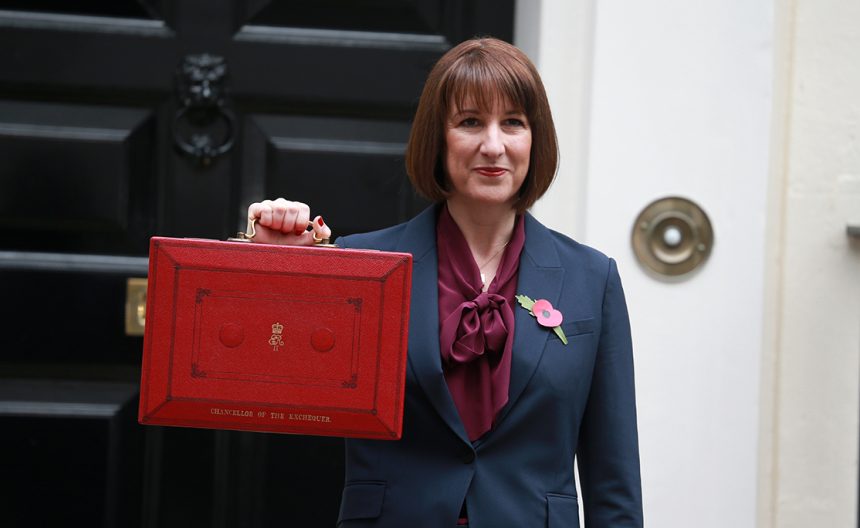Coach and bus trade bodies have aired concern for the plight of operators after an increase in employer National Insurance (NI) contributions was announced in the Budget this week.
The government’s employer NI hike of 1.2 percentage points to 15% and the lowering of the threshold below which earnings are exempt for this are expected to cost businesses around £800 per year per employee.
Although concurrent increase in Employers’ Allowance from £5,000 to £10,500 and the removal of the eligibility threshold means the very smallest businesses could be better off, many coach and bus operators are expected to be hard-hit.
Together with other changes announced this week which include the 6.7% rise in national minimum wage to £12.21, organisations representing the industry are worried operators will find it harder to hire and retain staff.
RHA, which speaks for the haulage and coach sectors, says: “Operators are clear the proposed rise in employers’ National Insurance to 15% from 6 April 2025 will make hiring staff and creating jobs harder.
“More than 95% of the haulage industry are small and medium sized companies who cannot afford more costs at a time when insolvencies in our sector are at a record level. We want the policymakers to work with us to minimise the financial burden placed on businesses, not add to them.
“We therefore welcome the Chancellor’s commitment to increase the employment support allowance for small businesses by a record amount, more than doubling it from £5,000 to £10,500.
“Increasing the minimum wage above inflation will impact all costs within the supply chain with businesses will have to accommodate this increase against a challenging economic backdrop.”
Meanwhile, for the Confederation of Passenger Transport, Alison Edwards, Director of Policy and External Relations, adds: “Our industry is a major employer in towns and cities across the UK, responsible for more than 150,000 jobs. The Chancellor’s increase in National Insurance contributions will weigh heavily on bus and coach operators, typically costing £800 a year for each driver.
“This big tax rise will weaken the ability of bus operators to invest in higher frequencies, new routes and modern, environmentally friendly vehicles. And it will hurt coach operators, many of which are small, family-owned businesses.”
The Association of Local Bus Managers (ALBUM), which had already criticised the increase of the bus fare cap in England to £3, said the NI changes were a bigger concern “against a background of increases in other, employment-related costs”.
ALBUM Chair Bill Hiron says: “We will yet again need to highlight to ministers and officials that bus industry inflation is driven by cost increases that are way above measures like CPI (consumer price index) – and those increases will flow through to passengers and to local authorities, all of whom are facing their own budget challenges.”
The Institute of Transport Administration (IoTA) repeated that concern. Its President, Alan Whittington, says: “We are concerned that in a very price-sensitive market, operators will not be able to pass on the extra driver costs through higher fares,” says Whittington.
“Operations have small profit margins, but have been working hard to increase wages to deal with labour shortages. This tax rise will squeeze that ability, especially at a time when they want to invest in newer, environmentally friendly vehicles.”
Roads investment
On other Budget-related areas, further to reaction published in the immediate aftermath of the Budget, RHA has been among those adding comments, issuing a mixed response on measures for roads investment and maintenance.
“The continuation of work on major strategic roads – the A47, A57 and A75 – is welcome, but we are concerned about delays and cancellations to other significant road projects such as the Lower Thames Crossing and the A303 Stonehenge tunnel,” a statement reads.
“Economic growth will only be achieved with investment in the infrastructure to support it. Whilst we await the announcement of RIS3 (road investment strategy 3), we urge the government to ensure that it backs new projects that eliminate congestion, connect the country, and unlock economic growth.”
It adds: “We welcome the additional £500m in the local road maintenance budget allocated for potholes, however it is vital that local authorities receive long-term road maintenance funding to enable better planning and scheduling of essential road and pothole repairs. Investment in new and improved roads will reduce congestion and increase productivity.”
RHA also says that is disappointed the Chancellor did not take the opportunity to extend full expensing to leased assets as mentioned by the previous government.
Further fare cap statement
Adding to previous comments on the rise in the fare cap, Mr Hiron gave a mixed view, highlighting both the issue faced when the fare cap ends in December 2025 and the fact that fuel duty has been held since 2011.
The ALBUM Chair says: “We know that DfT (Department for Transport) ministers had to work hard to avoid the sudden cancellation of the £2 fare cap and we welcome that.
“Nevertheless, passengers will be faced with big increases in fares when the cap rises by 50% to £3. Even more important will be the need to work closely with the DfT to manage the end of the £3 fare cap itself next year.
“The contrast with a 4.6% rise in rail fares next year and the continued freeze on fuel duty for car users is very stark, of course.”



























